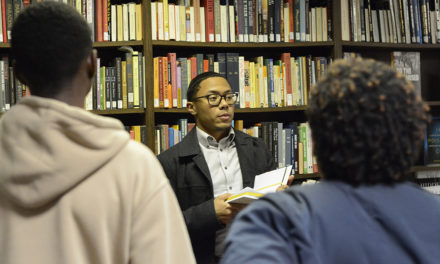National statistics suggest that 490 NC State women could be a victim of rape or attempted rape each academic school year. Alarming statistics like this one are the momentum behind organizations like The Movement. Many students haven’t been formally introduced to this new organization run in conjunction with the Women’s Center. During the spring of 2008, program advisor, Juliette Grimmett, began the course that serves as a pre-requisite for The Movement and is the foundation for training the members of this influential organization. Juliette Grimmett has been with the Women’s Center since the spring of 2007 and is the visionary behind organization. It consists of students from a variety of backgrounds, and ages and is both male and female. Since her arrival, the Women’s Center has seen a tremendous increase in the number of reported rape and assault cases from nine in a school year on average to about 70 reports.
Since The Movement has began teaching students, they aim to facilitate several seminars and informational sessions, throughout the semester, about the organization and how it works to serve the NC State community as well as offer prevention information on how to protect men and women from rape, assault and relationship violence.
The Movement caters to several student populations, like sororities and fraternities, Women in Science and Engineering (WISE), dormitories and First Year College classes. In each workshop, The Movement seeks to explain the uses of common sexually charged terms, take a non gender specific stance, meaning both genders are survivors of sexual assault or relationship violence and using methods to ensure prevention rather than reacting to an attack. Although these students are trained to organize these events and answer questions, they are not licensed counselors and don’t mentor survivors. Instead they refer survivors to Grimmett or a local hotline crisis call center. In most cases the survivors rarely contact the police first in sexual assault crimes but rather seek the help of a specialist in the field or someone trustworthy of not disclosing their traumatic experiences.
Grimmett said, “three to five percent of college students report their attack directly to police.” In any case, most publications available to students remind them of constant behaviors, dress, and awareness that they are responsible for rather than placing the attention on the perpetrators and how we as a student community can speak up against any derogatory comments or behaviors that indicate potential abusers. “We run a non-victim blame organization,” Grimmett said.
The Movement works with the Alliance for Sexual Assault Prevention in their efforts to change the culture of sexual deviance. Nationally one percent more African American women are assaulted each year than women of other ethnicities. “These statistics are not really helpful, I steer clear of them-and try and focus more on the attackers, not the survivors,” said Grimmett. Krista Prince, a senior in psychology and secretary of The Movement said, “The Movement made me more confident in my ability to speak out about issues that people tend to overlook.” The Movement will be instrumental in the annual Take Back the Night march, Tuesday October 28th, where students across campus rally together and march across campus to recognize the women and men who have been affected by rape or sexual assault. Take Back the Night challenges students to take an active stand against these violent attacks. Also, on Monday October 27th, The Movement will host a program about images in the media and how they contribute to our culture. For more information please contact Juliette Grimmett at http://www.ncsu.edu/womens_center/


